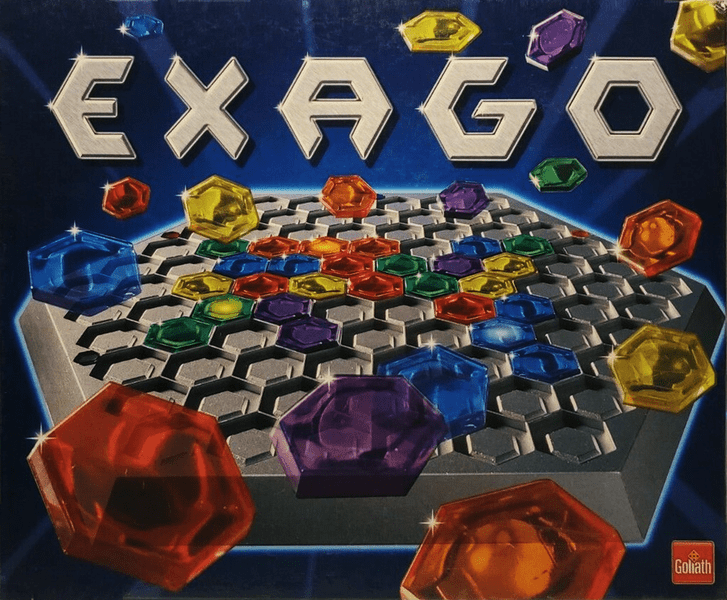Exago (2004) Board Game
Exago is an abstract strategy board game that was released in 2004 by designer Mark Forsyth and publisher danspil. The game is known for its simple rules yet strategic gameplay, making it engaging for players of all ages.
Game Components of Exago
How To Setup Exago
To set up Exago, players start by placing their hexagonal tiles within their designated area on the hexagonal board. The board itself serves as the central playing area where players will strategically place their tiles. Each player has a set of tiles of the same color, which they will use to build their pattern on the board.
Gameplay Mechanics and Game Objective
Player Experience
Exago offers a fun and challenging experience, requiring a blend of strategic thinking and tactical execution. Players must balance short-term moves with long-term strategies to outmaneuver their opponents. The game’s use of hexagonal tiles and the hexagonal board adds a unique geometric challenge, making each game engaging and different.
Pros
Cons
Personal Thoughts on Exago
Exago is ideal for fans of strategic and abstract board games. It’s a great choice for those who enjoy games like Chess or Azul, where planning and execution are crucial. The game is suitable for a wide range of players, from casual gamers looking for a fun challenge to more experienced players seeking to test their strategic skills. However, it may not be the best fit for those seeking high player interaction or cooperative gameplay.
We are supported by our audience. When you purchase through links on our site, we may earn an affiliate commission, at no extra cost for you. Learn more.

